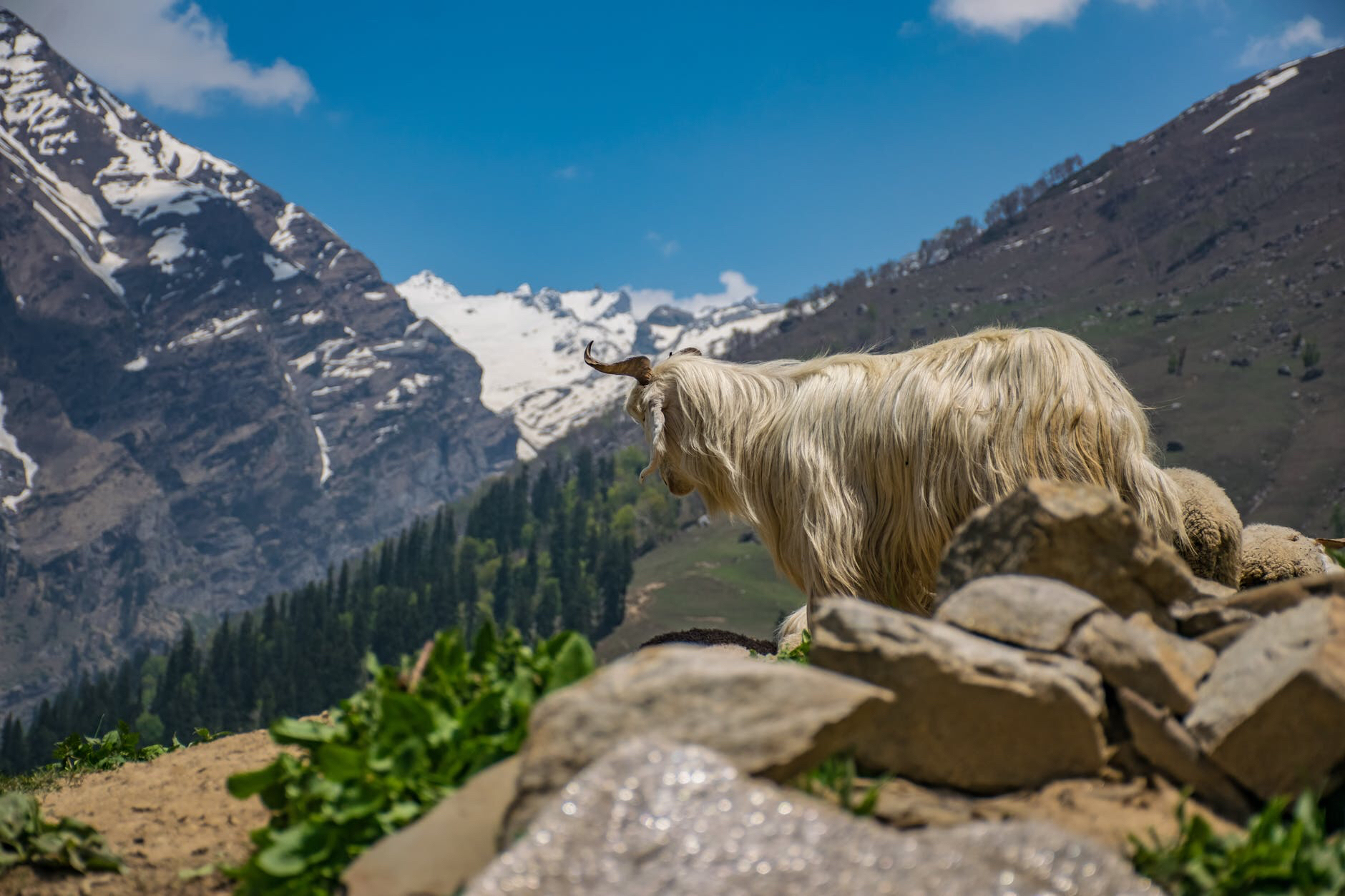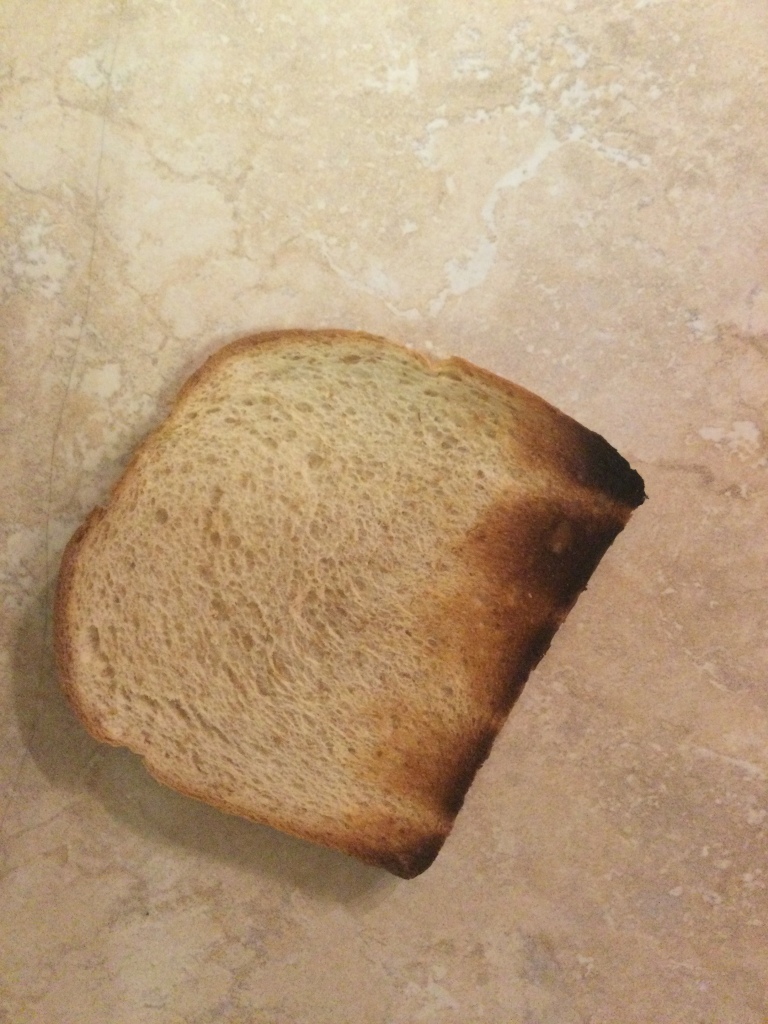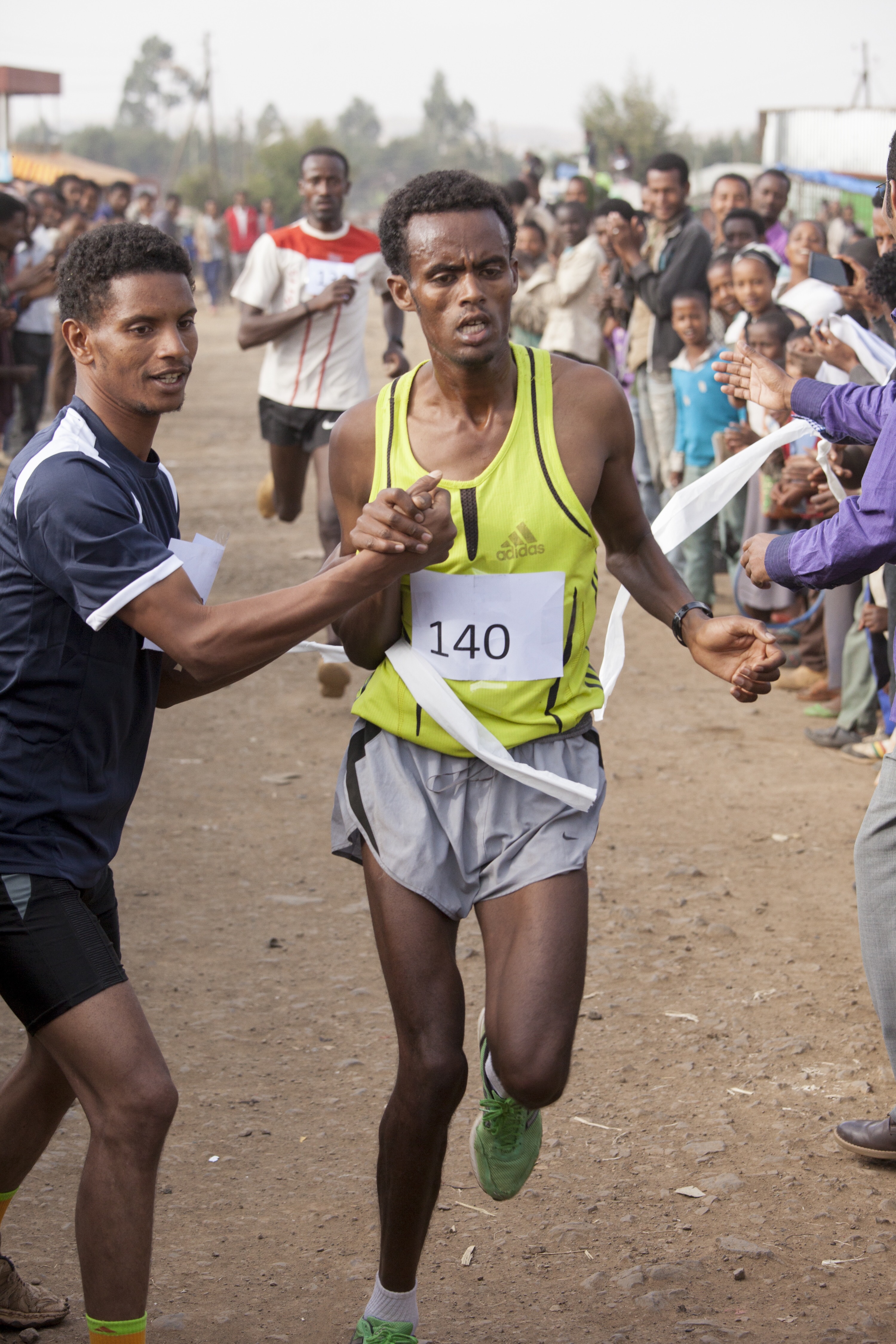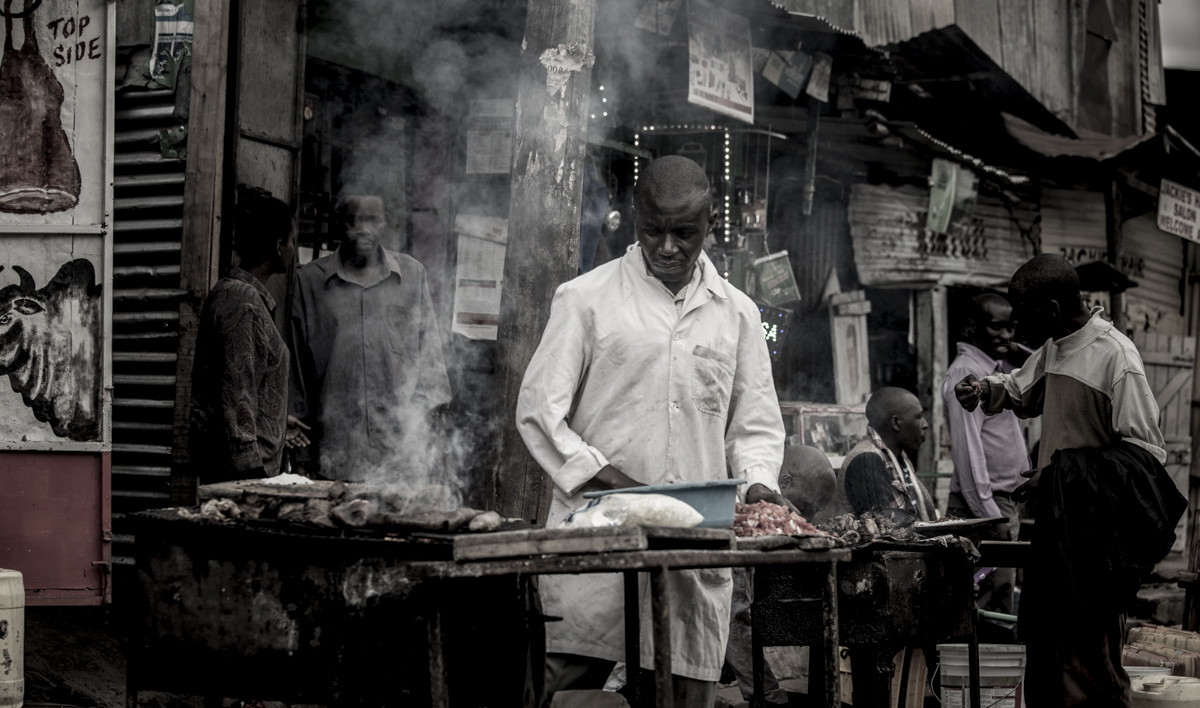In the north there was a forest full of animals. Now there was a trapper that frequented that forest, and would put out spring traps or what most people would call bear traps along the trails through the forest. He was indiscriminate in the kind of animals he would catch, and some of them were very large and could work themselves out of the trap on occasion, so he began to put locks on his traps, so that once they snapped shut, it would take a key to open it back up again. Over the years of trapping, he had lost a number of keys as they dropped out of his pockets, but it didn’t matter, because there was only one kind of key to open the trap, so he wasn’t concerned.
One night a mountain goat was walking along the trail. It was a powerful animal with clean white fur, and a large set of curved horns. The mountain goat had come down into the forested valley to find something to eat. In the darkness it put its back foot into the trap, and with a rusty clank it snapped shut. Startled by the noise as much as the pain, the goat jumped into the air but was pulled immediately back to the ground by the chain. The goat struggled and writhed on the ground trying to escape. As it did so, it rolled in the mud until its white coat turned a dirty brown and its horns became entangled in the brush. The fur on its ankle turned red from the blood that dripped from where the teeth of the trap angrily bit.
For what seemed like an eternity, the mountain goat lay there suffering, praying that the dawn would not come, when the hunter would return to check the traps. Eventually a lynx came by. It was a pretentious and selfish creature that liked to rely on itself. It too had an old, healed scar on one paw from a trap, but another animal had managed to let it out before the hunter came back.
The mountain goat lifted its head enough to see the lynx, and asked desperately, “Please, do you have a key to let me out? The hunter will be back at dawn.” The lynx, feeling dirty just looking at the mountain goat, began to lick itself and said. “I have a key, but you are much too filthy for me to come near. You are a strong animal. Perhaps if you could clean yourself up a bit first, I’d be able to come near enough to help you.”
“I am strong,” said the goat, “but as you can see, my horns are my strength, and they have only caused me to become more caught, so my strength is in fact my weakness.”
“Well, I feel sorry for you,” said the lynx, “but I simply can’t help you.” And the lynx moved on.
A bit later, the mountain goat heard some flapping. It was a raven, and like the lynx before it, there was an old scar on its leg. Now the raven loved to collect things and had actually stolen a key from the hunter. The mountain goat could see this, because the raven had made an elaborate headdress from the key and other bits of things it had stolen or found at other times. There were bits of metal and wire, and colorful pieces of lichen and plastic mixed in. It was gaudy and ridiculous, but the raven was very proud of it.
“Please,” said the goat, “I see you have a key. Could you please let me out of this trap before the hunter comes back?”
“Yes, I have a key,” said the raven, “but I’m afraid I can’t give it to you. You see, I worked very hard for all of the things in my headdress, and I’m very proud of it. With these things I am very rich and the key is the centerpiece. I simply can’t give it to you. But good luck to you.” With that, the raven flew off.
The mountain goat began to give up hope, and could see a faint glow through the trees. As a bit of purple began to replace the black in the sky, a third animal came by. This time it was an arctic fox. Like the other animals, it too had an old scar, though this one had begun to bleed again. The fox was also missing an eye from an injury it received walking around in the dark. Like the mountain goat, it had writhed around and gotten covered in mud and blood. But instead of getting cleaned up after being freed, the fox had just found and old campfire pit and rolled in the ashes to cover the brown and red of the mud and blood in its fur. The filth and injury was still apparent to the mountain goat, but the fox had convinced itself that it was spotless and whole.
The mountain goat didn’t put much hope in getting help from the fox, but decided to ask for help anyway. “Please,” the goat asked, “do you have a key to open this trap? The morning is coming soon and the trapper will return.”
The fox, who saw himself wise in the ways of things answered. “Sorry, I used to have a key, but at some point I misplaced it. But it’s ok. That’s a very beautiful ornament you stepped in,” (referring to the trap). I accept you just the way you are. Keep that ornament with honor and don’t ever let anyone tell you there’s anything wrong with wearing it.” With that, the fox trotted off, all the while bumping into things because of its lack of depth perception and leaving drops of blood from its unhealed wound.
Orange and red began to creep into the colors of the sky, and a few birds began to call in anticipation of the coming day. The mountain goat closed its eyes, ready to accept its fate.
As it lay there on the edge of exhausted sleep, the mountain goat woke to some rustling. Out of the corner of its eye, the goat spied a muskrat. This gave the goat no hope at all. The muskrat was a dirty and dim witted animal. It was not wise in the ways of things, it wasn’t strong, and it wasn’t rich. Like the other animals, this one had a scar, though this one was recent and had not yet healed well and was still bleeding. The mountain goat laid its head back down, nit bothering to ask for help.
“Perhaps I can help,” said the muskrat.
“I doubt it,” responded the mountain goat.
Without arguing, the muskrat scurried over and placed a key in the lock. “I was stuck like you once, but someone used this key to get me out. Then they gave it to me and told me to pass it on, so when I saw you, it seemed the right thing to do.”
The rusty lock grudgingly opened, and the mountain goat pulled its leg free. Unfortunately, its horns were still caught. But though the muskrat was not a strong animal, what it did have was teeth. It made short work of the brambles and branches and soon the mountain goat could move its head. But the the muskrat went further.
“I know you are a noble animal,” it said, “and all of this mud doesn’t suit you. You were created for better things than this. I don’t have much but what I do have I can give to you. My fur has oil in it. Who knows, maybe it will help.”
The muskrat began to rub its fur against the mountain goat. When it got too dirty, it would shake vigorously until mud flew in every direction. When it rubbed against the goat’s wound, the bleeding began to stop and the pain felt better. But amazingly, as the mountain goat became cleaner, the blood from it’s wound began to wash the dirt off the muskrat, and the goat’s now fluffy fleece began to clot the blood in the muskrat’s wound. They found that as one helped the other, they were both made whole. And the muskrat found that even though he was already free, his healing came in looking outside of himself.
Matthew 25:40 And the King will answer and say to them, ‘Assuredly, I say to you, inasmuch as you did it to one of the least of these My brethren, you did it to Me.’
James 4:17 Therefore, to him who knows to do good and does not do it, to him it is sin.
2 Corinthians 12:9 And He said to me, “My grace is sufficient for you, for My strength is made perfect in weakness.” Therefore most gladly I will rather boast in my infirmities, that the power of Christ may rest upon me.
Proverbs 27:17 As iron sharpens iron, so a man sharpens the countenance of his friend.
Isaiah 5:21 Woe to those who are wise in their own eyes, and prudent in their own sight!
James 3:13 Who is wise and understanding among you? Let him show by good conduct that his works are done in the meekness of wisdom.
James 2:1-4 My brethren, do not hold the faith of our Lord Jesus Christ, the Lord of glory, with partiality. 2 For if there should come into your assembly a man with gold rings, in [a]fine apparel, and there should also come in a poor man in filthy clothes, 3 and you pay attention to the one wearing the fine clothes and say to him, “You sit here in a good place,” and say to the poor man, “You stand there,” or, “Sit here at my footstool,” 4 have you not shown partiality among yourselves, and become judges with evil thoughts?
James 2:14-17 What does it profit, my brethren, if someone says he has faith but does not have works? Can faith save him? 15 If a brother or sister is naked and destitute of daily food, 16 and one of you says to them, “Depart in peace, be warmed and filled,” but you do not give them the things which are needed for the body, what does it profit? 17 Thus also faith by itself, if it does not have works, is dead.
Revelation 3:17-18 Because you say, ‘I am rich, have become wealthy, and have need of nothing’—and do not know that you are wretched, miserable, poor, blind, and naked— 18 I counsel you to buy from Me gold refined in the fire, that you may be rich; and white garments, that you may be clothed, that the shame of your nakedness may not be revealed; and anoint your eyes with eye salve, that you may see.
Romans 5:10 For if when we were enemies we were reconciled to God through the death of His Son, much more, having been reconciled, we shall be saved by His life.




